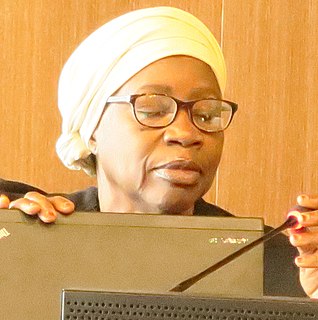Related Research Articles
Telecommunications in Senegal include radio, television, fixed and mobile telephones, and the Internet.
The media of Mali includes print, radio, television, and the Internet.

The media in Burkina Faso consists of print media and state-supported radio, news, and television stations, along with several private broadcasters with programs consisting of sports, music, cultural, or religious themes.
Media of Morocco includes newspapers, radio, television, and the Internet.
Algeria has more than 45 independent Arabic language and French language publications as well as 4 government-owned newspapers, but the government controls most printing presses and advertising. The Algerian newspapers with the largest circulations are Echourouk (1,800,000), Ennahar (1,600,000), El Khabar (1,000,000) and Quotidien d'Oran (700,000); all four are employee-owned. The government also owns all radio and television outlets, which provide pro-government programming. In 2004 and 2005, the government increased the access of Berber language and culture to both print and broadcast media.
Media in Niger is a diverse collection of public and private entities, both print and broadcast, centered in the capital of Niamey, but with vibrant regional centers. The media has historically been state funded, and focused on radio broadcast media, as the nation's population is spread over great distances. Niamey boasts scores of newspapers and magazines, many of which are fiercely critical of the government. These papers though have very small circulations, and almost none outside the cities.
Le Quotidien is a major independent daily newspaper in Senegal, based in the capital of Dakar. It also publishes a glossy weekly, entitled Week end.
The Media in Angola is primarily controlled by Angola's dominant political party, the People's Movement for the Liberation of Angola (MPLA), led by José Eduardo dos Santos, the country's president.

Media in Burundi is controlled by the government.
The media of Cameroon includes independent outlets. The nation has only one national newspaper, which is state owned.
Media of the Central Africa is controlled by the government.

Media in the Democratic Republic of the Congo are both nationally and internationally state owned and operated.
Media in Ivory Coast is controlled by the government. Audiovisual communications are regulated by the Conseil national de la communication audiovisuelle (CNCA), an administrative arm of the national government.
The media of Gabon is primarily monitored by the Gabon government. Although the main newspapers are associated with the government, there are private broadcasters, and private weekly newspapers that are mostly controlled by opposition parties.
The media of Tunisia is an economic sector. Under the authoritarian regimes of Habib Bourguiba, and then Zine el-Abidine Ben Ali, it saw periods of liberalization and then challenges, notably due to Tunisian censorship. The 2010-2011 Tunisian protests and the subsequent change in government may bring significant change in this domain.
The media of Mauritania is undergoing a shift into a freer journalistic environment, while becoming increasingly open to private sector.
The following is a timeline of the history of the city of Dakar, Senegal.

Codou Bop is a Senegalese sociologist, journalist and women's rights activist who also engages against gender violence in Sub-Saharan Africa.
References
- 1 2 3 4 5 Senegal Country Commercial Guide 2008 Archived May 7, 2009, at the Wayback Machine . U.S. Commercial Service (2008).

